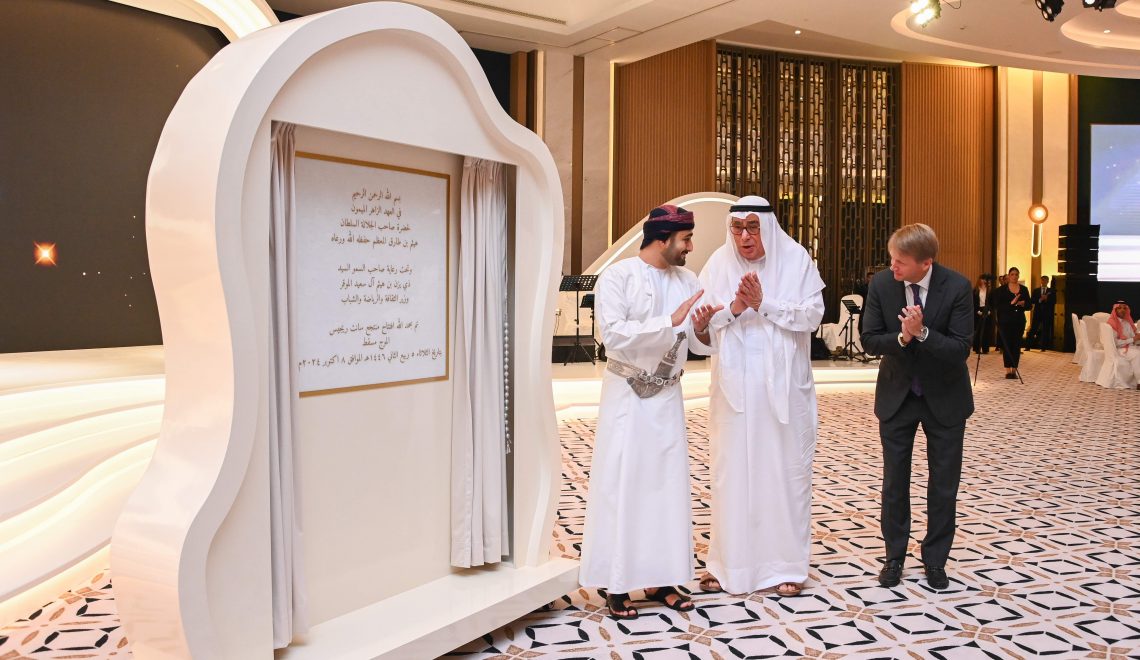A collection of Modern Iraqi art is on sale at Christie’s Middle East online and is one of the most diverse and historically important modern Arab art collections from an American family to come to the market …
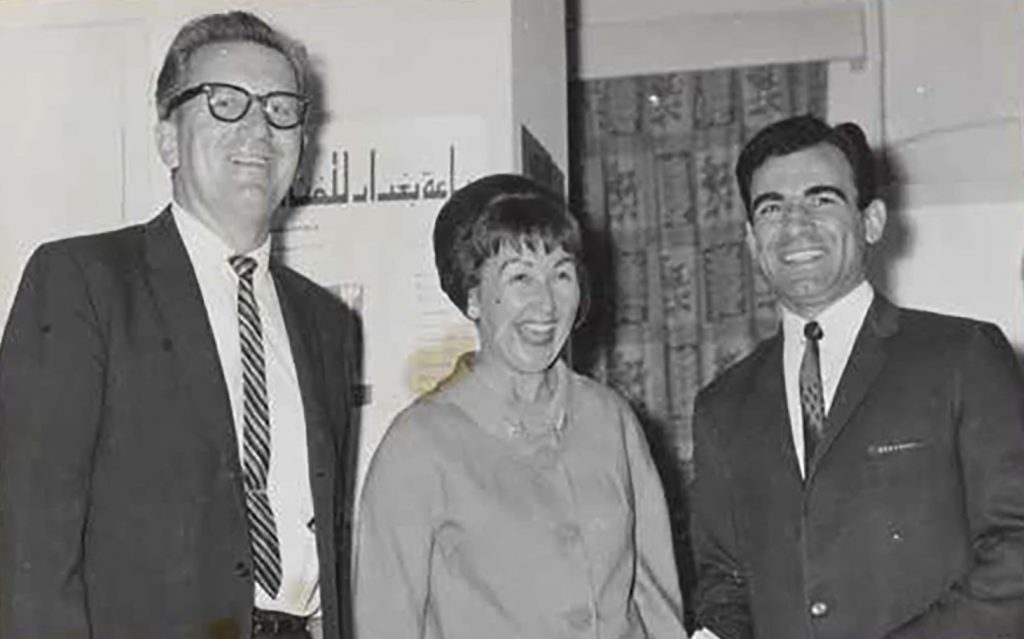
Director of the American Friends of the Middle East, Orin Parker and his wife Rita, lived in Baghdad from 1960-65 along with their five children. During their stay, the Parkers collected and created “one of the most diverse and historically important modern Arab art collections from an American family.” The collection is now on sale at Christie’s Middle East online until Nov. 3 with an exhibition at Christie’s in Kings Street, London.
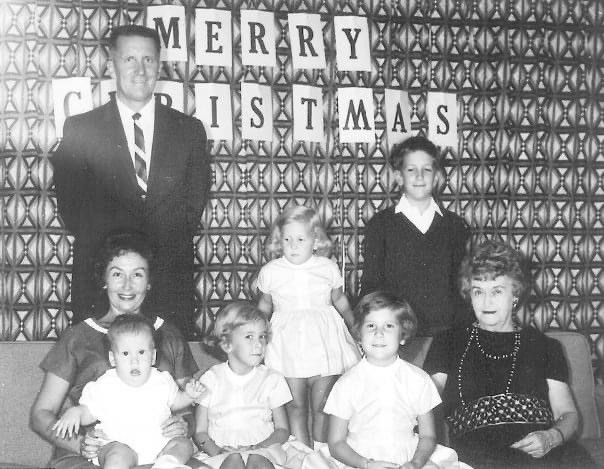
The collection comprises 21 works by the then emerging artists including Faeq Hassan, Dia Al-Azzawi and Lorna Selim, with estimates from US$3,000. In his position as the director of the 1951-founded American Friends of the Middle East (AFME), Orin Parker not only worked to promote US-Iraqi relations through the non-profit organisation, but also found a way to interact and offer a cultural platform to support pioneering artists like Jewad Selim, Faeq Hassan and Dia Al-Azzawi alongside other lesser-known artists within the Basrah art circle, including Maurice Haddad and Jabbar Daoud.
The majority of works offered in the sale were produced and acquired within a key turning point for the country, both culturally and politically, making the collection exemplary of this crucial time period.
The importance of the Parker Collection is made in part by the treasure trove of archival images and detailed texts that have survived with the children today. Sale Highlights include:
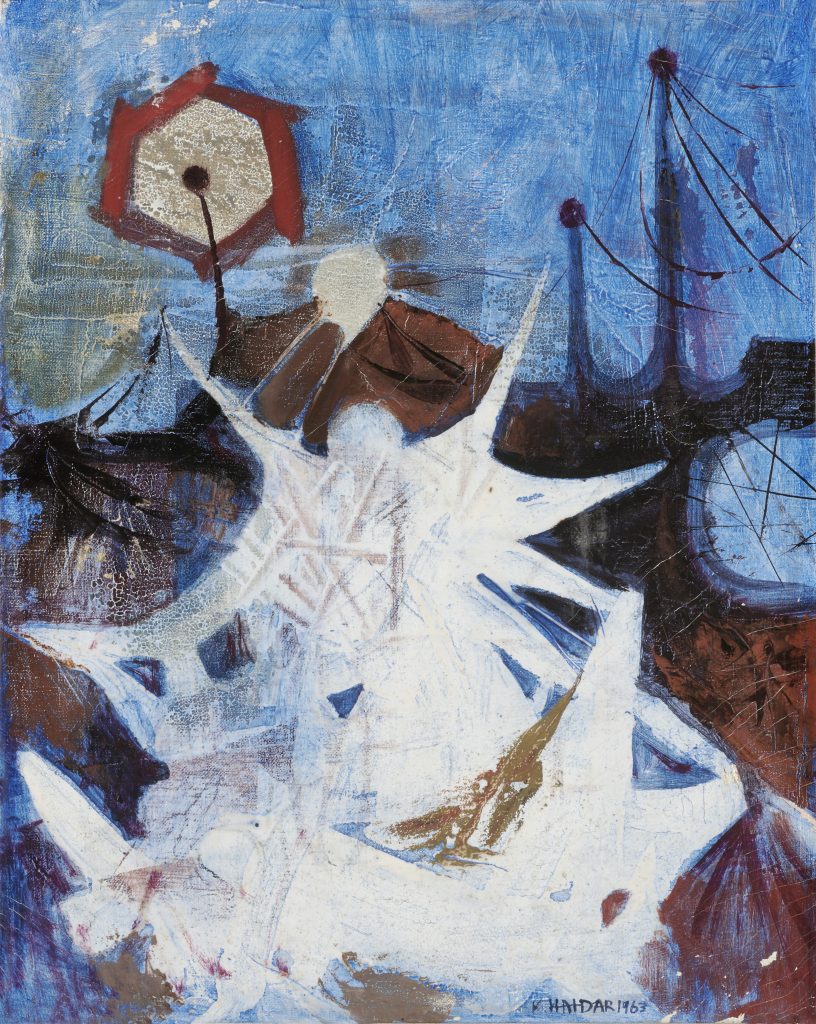
This work comes from Kadhim Haider’s most important series ‘Martyr’s Epic’ depicting a significant moment in Islamic history and the political and cultural context of the 1963 coup. The title He is destroyed that he may return corresponds to a larger poem Haider wrote in 1965 and was shown at a landmark exhibition at the then new National Museum of Modern Art in Baghdad with a larger grouping of works from the series. Painted in 1963, the work is offered with an estimate of £40,000-60,000.
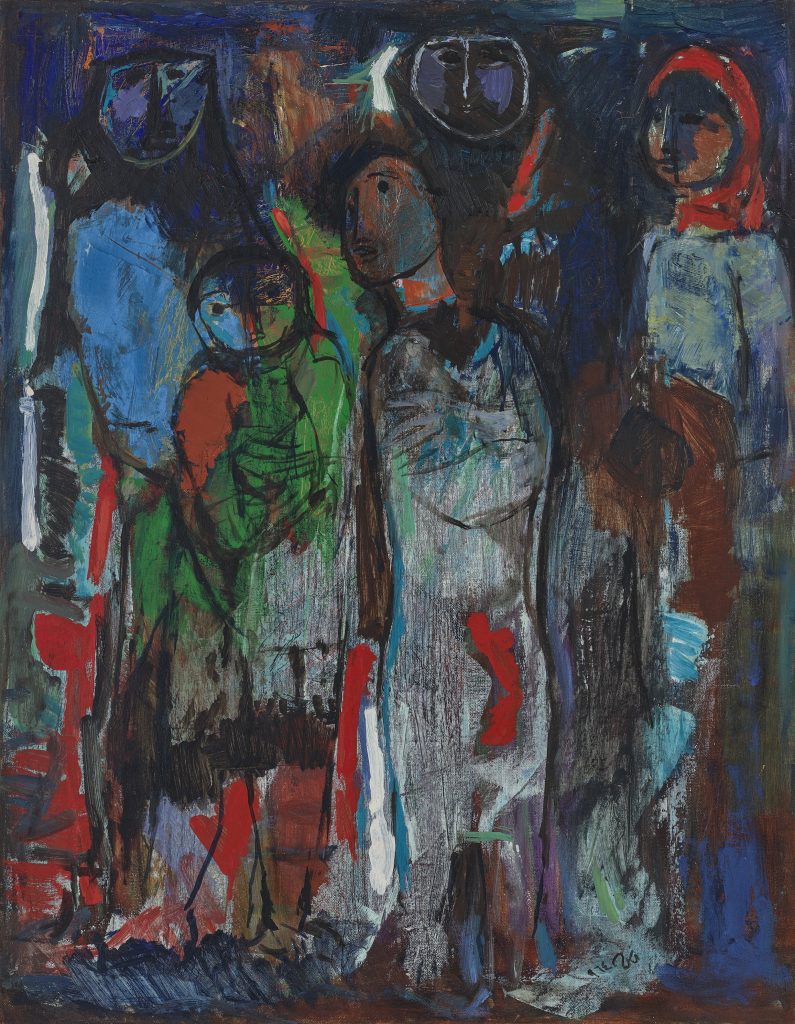
Bridging the gap between Iraqi heritage, traditional art and modern art, Faeq Hassan’s Family Group was painted in 1964 using oil on canvas and is estimated at £25,000-35,000. This painting was exhibited in 1965 at an exhibition at the American Friends of the Middle East and represents a key work for its experimentation in colour and thick impressionist brush strokes. Hassan is notable within Iraq as an arts educator, as founder of the Institute of Fine Art’s painting department and known for his depictions of everyday life.
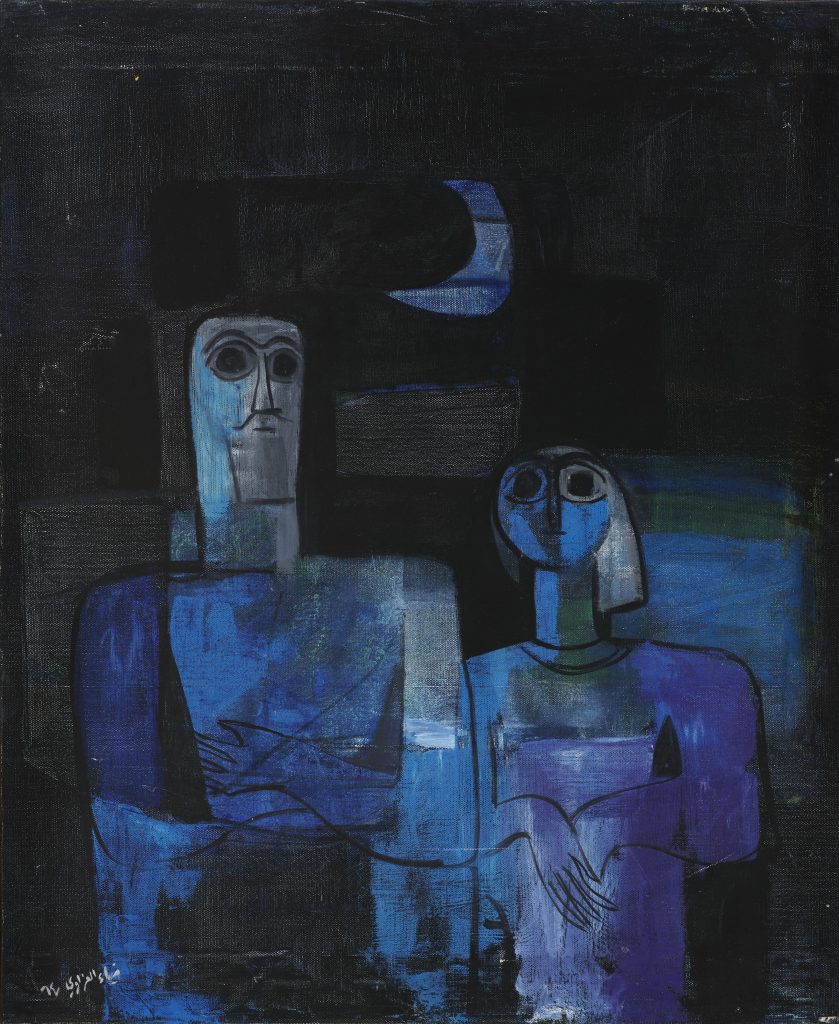
Student of Faeq Hassan, Dia Al-Azzawi graduated in 1962 from the Institute of Fine Arts in Baghdad with additional degrees in Archaeology from Baghdad University. His artworks combined folklore imagery with popular religious and cultural iconography in his modern paintings. The oil on canvas painting Man and Woman (estimate of £40,000-60,000) was shown at the artist’s first solo exhibition at Al Wasiti Gallery in Baghdad in 1965.
The paintings from the collection as well as from the entire auction are exhibited at Christie’s London from October 22–November 3, accompanied by a dedicated panel discussion on October 27 led by Dr Nada Shabout, Dr Ahmed Naji, David Parker and moderated by Christie’s Specialist, Suzy Sikorski.

